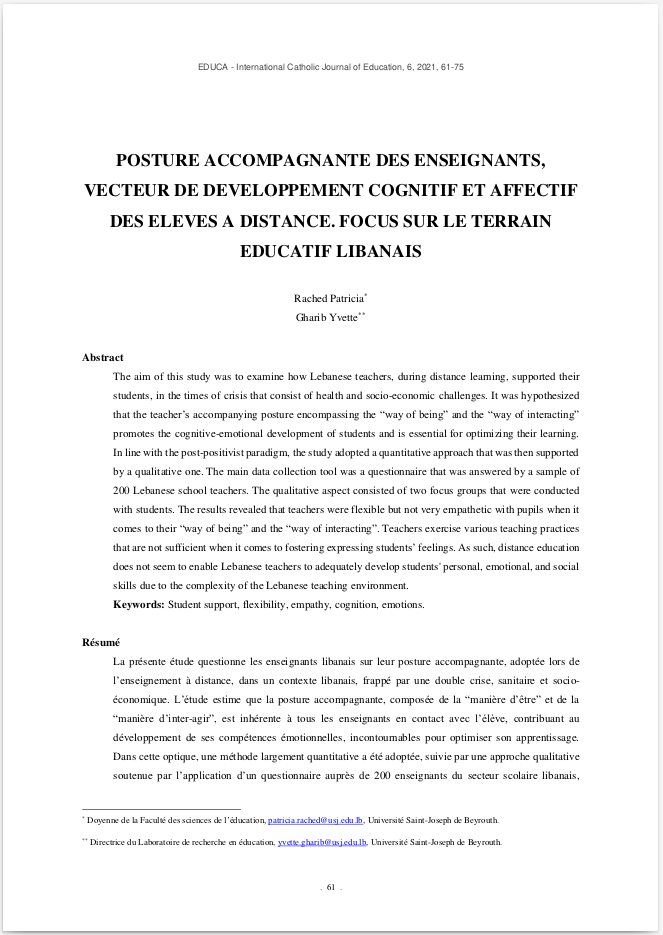Posture accompagnante des enseignants, vecteur de developpement cognitif et affectif des eleves a distance. Focus sur le terrain educatif Libanais.
Main Article Content
Abstract
The aim of this study was to examine how Lebanese teachers, during distance learning, supported their students, in the times of crisis that consist of health and socio-economic challenges. It was hypothesized that the teacher’s accompanying posture encompassing the “way of being” and the “way of interacting” promotes the cognitive-emotional development of students and is essential for optimizing their learning.
In line with the post-positivist paradigm, the study adopted a quantitative approach that was then supported by a qualitative one. The main data collection tool was a questionnaire that was answered by a sample of 200 Lebanese school teachers. The qualitative aspect consisted of two focus groups that were conducted with students. The results revealed that teachers were flexible but not very empathetic with pupils when it comes to their “way of being” and the “way of interacting”. Teachers exercise various teaching practices that are not sufficient when it comes to fostering expressing students’ feelings. As such, distance education does not seem to enable Lebanese teachers to adequately develop students' personal, emotional, and social skills due to the complexity of the Lebanese teaching environment.

